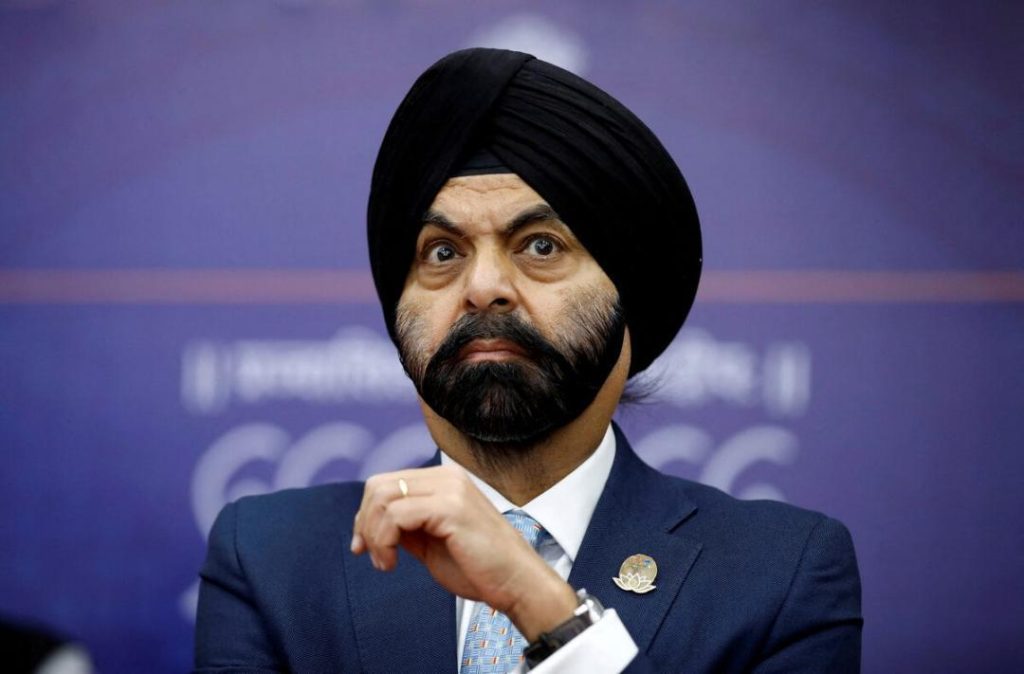
World Bank Won’t Intervene in Indus Waters Treaty: Chief Banga
The Indus Waters Treaty, a decades-old agreement between India and Pakistan, has been in the news lately due to a dispute over its implementation. The treaty, signed in 1960, regulates the sharing of waters from the Indus River and its tributaries between the two countries. However, the recent tensions between India and Pakistan have led to a stalemate in the treaty’s implementation, with both countries accusing each other of violating its terms.
In a recent development, World Bank President Ajay Banga has stated that the bank will not intervene in the ongoing dispute over the Indus Waters Treaty. Banga said that the bank has not received any formal communication from either government regarding the issue, and therefore, it is not planning to intervene.
The Indus Waters Treaty was signed with the help of the World Bank, which is also a signatory to the agreement. The treaty was instrumental in resolving the water dispute between India and Pakistan, which had been a major source of tension between the two countries. The treaty established a Permanent Indus Commission (PIC) to oversee the implementation of the agreement and resolve any disputes that may arise.
However, in recent years, tensions have been rising between India and Pakistan over the treaty’s implementation. Pakistan has accused India of violating the treaty’s terms, particularly with regards to the construction of dams and other hydroelectric projects in the region. India, on the other hand, has denied any wrongdoing and has accused Pakistan of not fulfilling its obligations under the treaty.
The dispute over the Indus Waters Treaty has been escalating over the past few years, with both countries engaging in a war of words over the issue. Pakistan has been seeking international intervention to resolve the dispute, while India has maintained that the treaty is a bilateral agreement and that any disputes should be resolved through diplomatic channels.
In the wake of the recent tensions between India and Pakistan, the World Bank has been under pressure to intervene in the dispute. However, according to Banga, the bank has not received any formal communication from either government regarding the issue, and therefore, it is not planning to intervene.
Banga’s statement has sparked controversy, with many experts and analysts questioning the bank’s decision not to intervene. Some have argued that the World Bank has a moral obligation to intervene in the dispute, given its role in facilitating the treaty’s signing and implementation.
Others have argued that the bank’s decision not to intervene is a sign of its lack of commitment to resolving international disputes. The World Bank has been criticized in the past for its lack of action in resolving conflicts between its member countries, and Banga’s statement has only added to the criticism.
Despite the controversy surrounding the World Bank’s decision, it is clear that the dispute over the Indus Waters Treaty is a complex and sensitive issue that requires careful handling. The treaty has been a cornerstone of Indo-Pakistani relations for decades, and any changes to its implementation could have significant implications for the region.
In conclusion, the World Bank’s decision not to intervene in the dispute over the Indus Waters Treaty is a significant development in the ongoing saga. While some may question the bank’s decision, it is clear that the issue is a complex and sensitive one that requires careful handling. The fate of the treaty and the future of Indo-Pakistani relations hang in the balance, and it remains to be seen how the dispute will be resolved.






